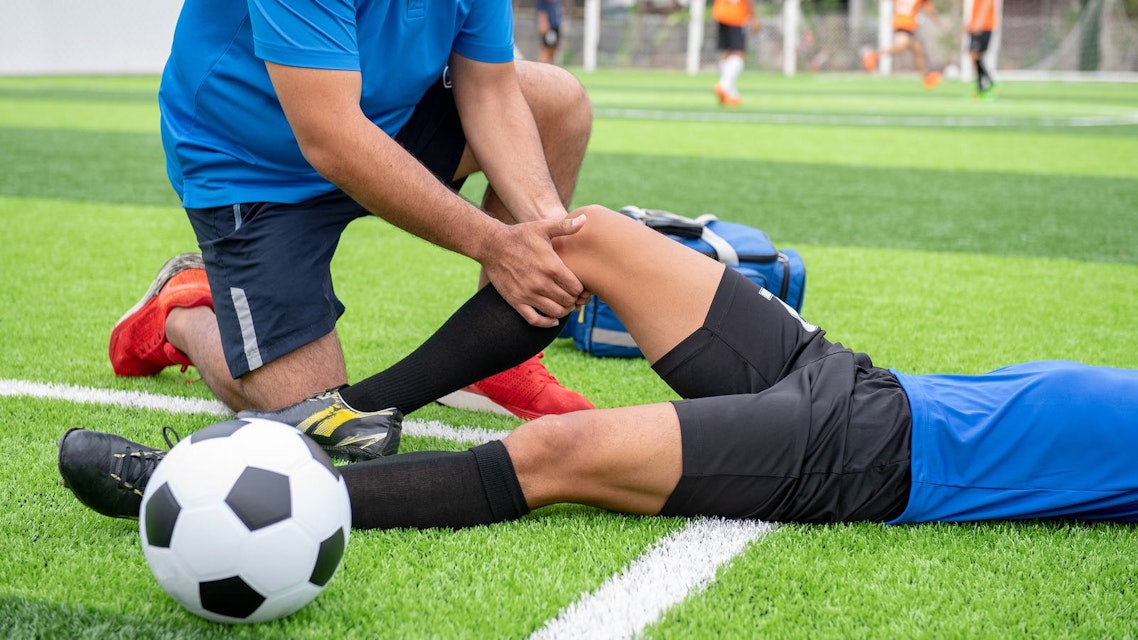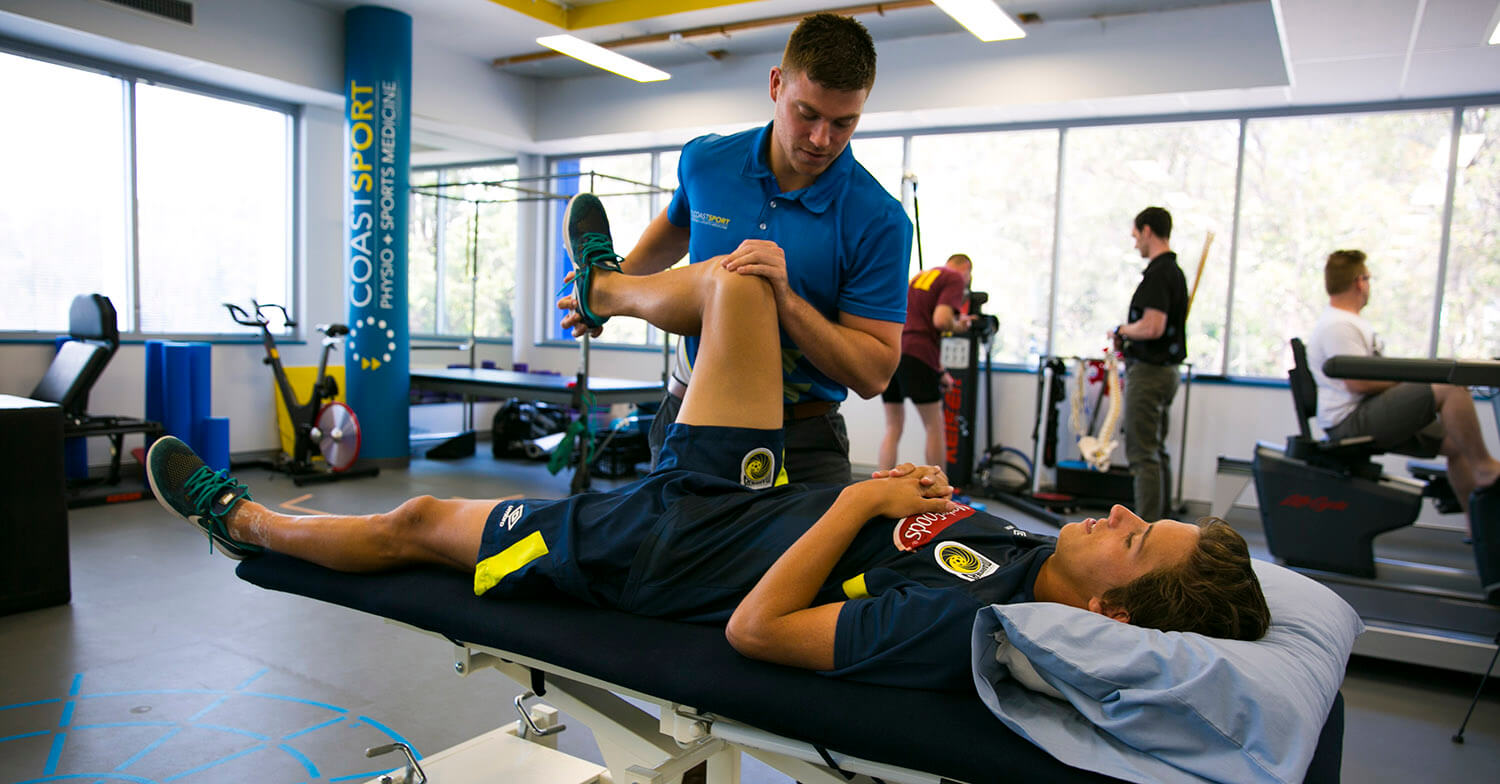Physical and Sports Physiotherapists play a role to prevent and treatment of injuries caused by exercising and sport in all ages and all levels of skill. They provide scientifically-based guidelines for safe participation in exercise and sport. Additionally, they encourage an active life style to assist individuals in maintaining and improving their overall health. Physiotherapists for sports and exercise are a major factor in aiding athletes from all ages and levels of fitness to improve their performance.
What are the roles of Sports and Exercise Therapists perform?
The New Zealand Sports Physiotherapy organization defines an athlete physiotherapist as:
“A recognized professional who demonstrates advanced competencies in the promotion of safe physical activity participation, provision of advice, and adaptation of rehabilitation and training interventions, for the purposes of preventing injury, restoring optimal function, and contributing to the enhancement of sports performance, in athletes of all ages and abilities, while ensuring a high standard of professional and ethical practice.”

Physiotherapists and sports therapists work in a variety of environments. Many of them work with athletes who are active in private or clinic environments. They may also participate with club and social activities and participate in training sessions.
Exercise and sports physiotherapists typically operate in the elite athlete arena within professional and competitive sports, and travel with elite athletes, or teams as well as working in conjunction with other medical experts such as coaches as well as strength and conditioning staff as well as other support personnel. Exercise physiotherapists and sports physiotherapists are also involved in different sports organizations in coordination of physiotherapy services and rehabilitation, injury prevention and injury monitoring programmes.
Sports and Exercise Physiotherapy Roles and Competency Areas

Ashton (2015) outlines the latest competencies of a sports physiotherapist in the encouragement of secure physical exercise participation, providing guidance, and modifying rehab and training exercises with the aim of stopping injury, recovering the optimal functioning, and aiding in the improvement of athletic performance athletes of any age and ability and providing a high-quality professional and ethical practices. The role of physiotherapists will vary, and it is dependent on:
- the sport they participate in
- their particular role in the team
- The performance level of the sport, whether local or professional or international level.
The International Federation of Sports Physical Therapy (IFSPT) has identified 11 skills that are required by sports and exercise physical therapists. In addition to these skills, there is the specific qualifications or standards that have to be adhered to. These qualifications along with the norms are4 are linked to the many tasks that the sports and exercise physiotherapists perform. The many roles and skills may include:
- The manager of the patient or client
- Injury Prevention
- Sports and exercise physiotherapists analyze the chance of injury that is associated to the practice of an exercise or sport exercise. They are trained to educate and instruct coaches, athletes along with other multidisciplinary members that there is an improvement in the incidence and frequency of certain injuries.
- Acute Intervention
- Exercise physiotherapists and sports trainers are skilled in responding properly to an injury or illness in different contexts for example, competition or training.
- Rehabilitation
- The physiotherapists for exercise and sports use their clinical reasoning skills and therapeutic abilities to diagnose and treat injuries resulting from sports. Additionally, they are proficient in implementing, designing evaluation and altering strategies based on evidence that are designed to achieve the safe return to an highest level of performance in their particular sport or physical exercise.
- Performance Enhancement
- The physiotherapists of exercise and sports help to improve the performance of athletes through assessment on the athletes physical and performance profile. They are able to provide advice or assist in optimizing performance in a particular sport as part of an approach to multidisciplinary teams.
- Injury Prevention

- Advisor
- Promotion of a Safe, Active Lifestyle
- Physical and sports physiotherapists are proficient in working with other professionals within the multidisciplinary team environment to ensure the safest participation in physical and sports activities for all capabilities. They are expected to offer evidence-based recommendations on the most suitable sport or activity for a particular person and also provide advice on ways to reduce the injuries and enhance health.
- Promotion of Fair Play and Anti-Doping Practices
- Exercise physiotherapists and sports physiotherapists are involved and advocate for ethical, safe and professional athletic practices. They are strongly in favor of fair play and the duty to care for the athlete. They respect the International Sports Physiotherapy Code of Conduct regarding Doping.
- Promotion of a Safe, Active Lifestyle
- Professional Leader
- Life-Long Learning
- Physiotherapists for exercise and sports maintain their professional standards by using critical, reflective, and evidence-based practices. They participate in a constant process of education and learning throughout their professional career. They also collaborate closely alongside other professional.
- Professionalism and Management
- Physiotherapists for exercise and sports are skilled in the administration of staff, resources, and time. They do this professionally, legally as well as ethical way. They also encourage and support professional growth and improvement.
- Life-Long Learning
- Innovator
- Research Involvement
- The physiotherapists who work with exercise and sports are aware of and evaluate their practices in relation to the latest information. They are able to identify areas to further research and are actively engaged in research that addresses these issues at different levels.
- Dissemination of Best Practice
- Exercise and sports physiotherapists share new research and knowledge to professionals in the multidisciplinary team that is set up by using different channels, including team communications conferences, conference or special interest groups meetings, research collaborations and publications like reports, journal articles, announcements, newsletters, and promotional documents on the internet.
- Extending Practice with Innovation
- The physiotherapists who work in sports and exercise encourage and encourage the integration and application of innovative and new ideas within multidisciplinary team practices and decision-making process. They also have an impact on future research and innovation direction.
- Research Involvement
The Role of the Sports and Exercise Physiotherapist in International/Elite Sports

The physiotherapy profession has grown to be an integral component of the team for sports medicine. In the London 2012 Olympic Games, they were part of the biggest professional team working for the Olympic Games. The primary role of a sports physiotherapist in international as well as elite sports (and at all levels of sports, in general) continues to be to assist in the treatment and rehabilitation for injuries as well as assist athletes through preventative, maintenance and recovery exercises.
The typical perception of the function of the sports physiotherapist to assist athletes in competition or during major games appears to be that the physiotherapist is an “provider of treatment interventions related to specific injuries.” Based on recent research, it’s obvious that sports physiotherapists are playing a more important role in assisting injured athletes. At the London 2012 Olympic Games, athletes sought out physiotherapy even if they were not injured.
An logical assumption could be that sessions focusing on maintaining physical fitness and aiding recuperation, play a role in assisting athletes. It was also apparent that athletes require periodic visits to address the same injury or condition as well as that injuries to muscles were among the most frequent. In addition, non-injury related visits to physiotherapy sessions/interviews indicated the importance of maintaining the muscles and skeletal system in order to prevent injuries and support for recovery.
Sports physiotherapists who treat elite or international athletes also have to deal with the issue of managing pre-existing ailments. Injury from overuse in athletes was recognized as the primary reason for seeking physiotherapy (44 percent).
It is apparent that the job of a physical therapist in the world of international sports is extensive and the job goes beyond treating of injuries to a larger role that includes assistance in maintaining musculoskeletal health and recovery, as and ways to prevent injuries.
The physiotherapist working in sports is also a distinct position to to assume leading roles. The range of range of skills for a sports physiotherapist which includes competencies like knowing how to manage acute care as well as exercise-based strategies to treatment and prevention of injuries in general concepts in strength and conditioning allow sports physiotherapists manage the health of athletes from various sports code. Another advantage is the substantial quantity of time that sports physiotherapists work directly with athletes.
